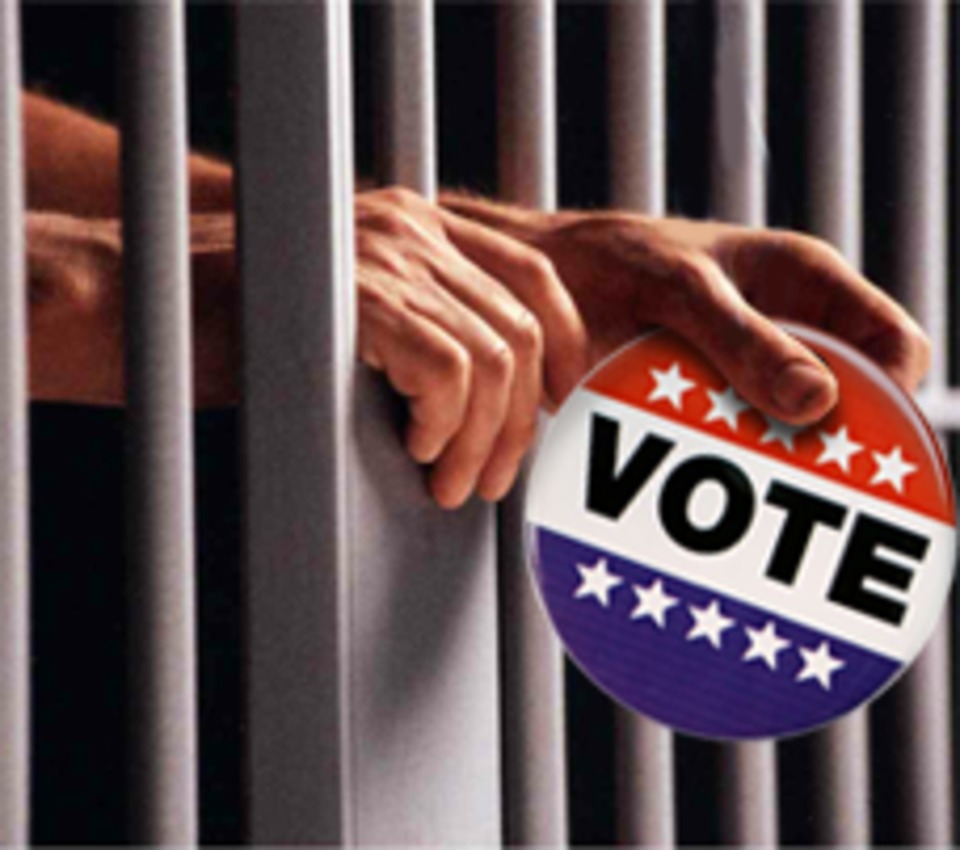
Florida voters support restoring suffrage for reformed felons, according to a new poll from the University of North Florida.
The poll found 71 percent of voters support Amendment 4, also known as the “Voting Restoration Amendment,” with just 21 percent opposed. Ballot amendments need 60 percent support from voters in order make it into the Florida Constitution.
Among Democrats, 83 percent back the policy change. Among Republicans, 62 percent are in favor; however, even that is above the threshold for ratification.
Broad support for the proposal transcends racial differences also; 65 percent of Hispanics and 69 percent of whites join 82 percent of African-Americans in supporting the amendment.
“These results reflect the status of African-Americans as the population most directly affected by Florida’s felon disenfranchisement laws,” said Dr. Natasha Christie, chair of the Department of Political Science and Public Administration at UNF.
African-Americans make up around 30 percent of Florida’s disenfranchised population.
“With such a large majority of likely voters saying they would vote “yes” on Amendment 4, this indicates views on this issue are becoming more progressive overall throughout the state, regardless of race,” Christie added.
The poll of 616 likely voters, conducted Sept. 17 through 19 using live calls, saw respondents split 41 percent Republican, 40 percent Democrat, and the balance independents. The margin of error is plus or minus four percentage points.
UNF’s new poll results show remarkable consistency with their earlier measures of the amendment, dating back to at least February.
Seven months ago, UNF found voters saw the amendment favorably by a 71-22 percent margin. One major change, however, is that only 52 percent of Republicans were on board seven months ago, a full 10 percentage points behind the September poll. The old poll also showed support among every age group, with the generally more conservative 60-plus demographic coming in at 61 percent support.
Also, in May, a joint survey conducted by Republican-leaning North Star Opinion Research and Democratic-leaning EMC Research found Amendment 4 had the support of 74 percent of voters with supermajority support among Democrats, Republicans and independent voters.
The amendment is backed by political committee Floridians for a Fair Democracy, which sponsored the petition and signature verification effort to get the proposal on the 2018 ballot. In the leadup to the general election, other orgs have pitched in with advertising — the Alliance for Safety and Justice and the Florida Rights Restoration Coalition recently teamed up for a statewide ad buy. The amendment also recently earned an endorsement from the Koch brothers-backed Freedom Partners Chamber of Commerce.
Florida is among the nation’s leaders in voter disenfranchisement that critics say is racist in application. The New York Times reported in 2016 that more than 20 percent of African-American men have been divested of suffrage.
Overall, there are about 1.7 million convicted felons in the Sunshine State. Amendment 4 would restore voting rights to the vast majority of those individuals, though the amendment does carve out those who have been convicted of sex offenses or capital crimes, such as murder. The current voting rights restoration system requires felons to wait up to seven years after their conviction to apply for restoration, which is handled on a case-by-case basis by the Governor and Cabinet.




3 comments
Roger Clegg
September 24, 2018 at 6:41 am
If you are not willing to follow the law yourself then you should not have a role in making the law for everyone else, which is what you do directly or indirectly when you vote. The right to vote should be restored only after the felon shows that he has turned over a new leaf, not automatically on release from prison. After all the unfortunate fact is that most felons will be returning to prison.
Brendan
September 24, 2018 at 6:02 pm
The right to vote, will only be restored after they have completed their sentence, which includes not only incarceration, but also parole and probation. Therefore your wrong that it happens upon their release.
Dan Lanske
September 24, 2018 at 7:42 am
voting no
Comments are closed.